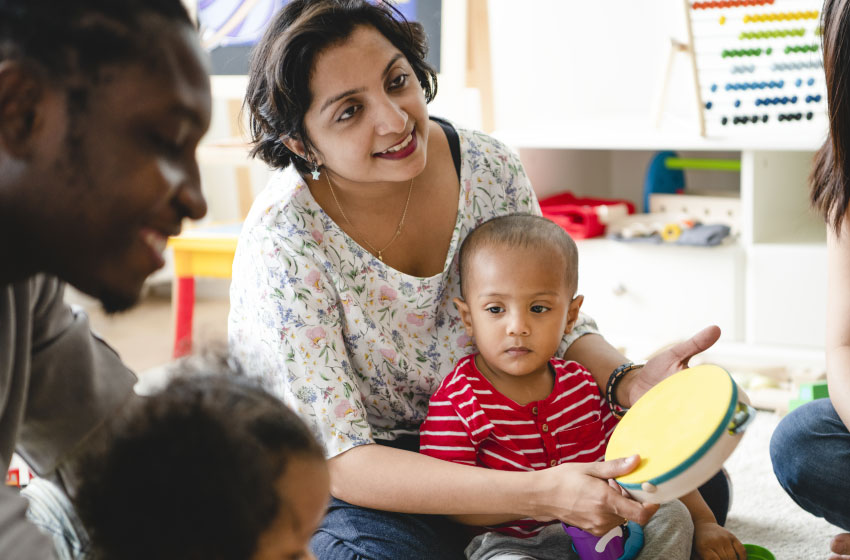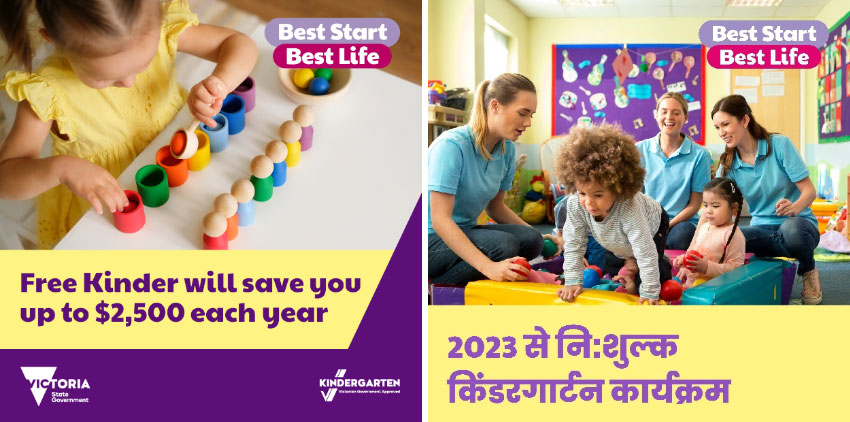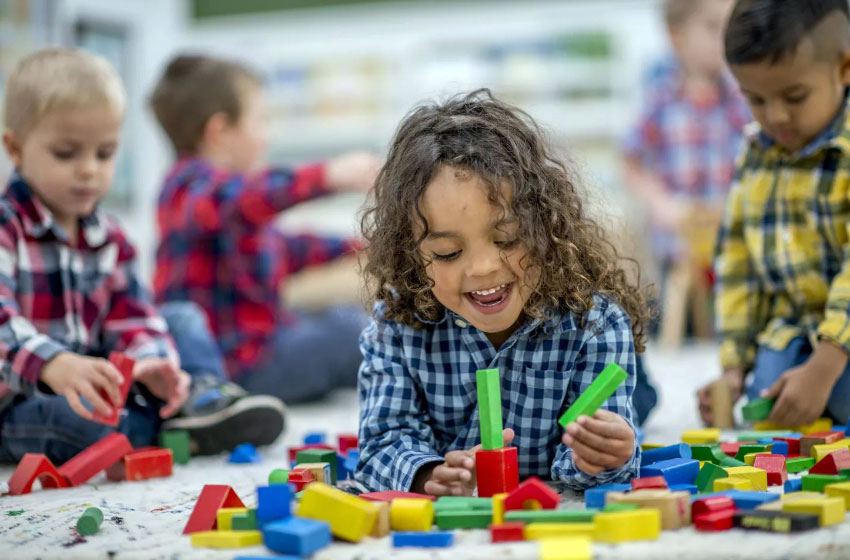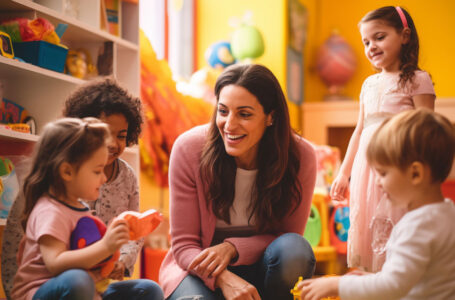Golden Opportunity for Indians in Victoria – The Gift of Kindergarten

As we embark on a brand-new year, we would like to speak about an initiative that is reshaping the landscape of early childhood education – The Victorian Government’s Free Kinder program, a cornerstone of the ‘Best Start, Best Life’ reforms, but also a model of community, opportunity, and educational excellence.
The Free Kinder program, started in 2023 for both 3 and 4-year-old kindergarten, is not just a service; it’s a transformative experience for families, especially within the Indian community, offering a blend of cultural understanding, educational quality, and financial relief.
The Free Kinder program offers various session types and plans, catering to the diverse needs and schedules of families. This flexibility highlights the program’s commitment to inclusivity and personalised care. The benefits extend beyond the children; it’s a support system for the entire family. Parents, especially mothers, are finding better support to return to work comfortably, knowing that their children are under expert care.

“I couldn’t believe it when I first heard about the Free Kinder program,” shares Mrs. Sharma (name changed), parent to two kinder-going children. Her eyes reflecting the relief and joy that many in her community feel.
“Saving up to $2,500 per child each year is a huge deal for us. It’s not just about the money, though that’s significant. It’s the peace of mind, knowing that my child is in a safe, nurturing environment with certified professionals. This program is a lifeline, allowing us to balance our family budget better while ensuring our children get the best start in life.”
Mr. Deepak, a seasoned kinder professional, with years of experience in early childhood education, speaks passionately about the program’s impact.
“As a funded kindergarten program with a Kinder Tick, our approach is holistic. We ensure that children are not only cared for but are also learning in an environment that fosters their natural curiosity and creativity. The alignment with the Victorian Early Years Learning and Development Framework guarantees that we meet, if not exceed, the minimum requirements for preschool education for a much larger pool of children. This sets the stage for a seamless transition into primary school, be it public or private. It’s about laying a strong foundation for a more-inclusive future educational journey.”
Speaking on her role as a CALD Outreach Officer working within the Council led CALD outreach programs, funded by the Victorian government under the initiative, Ms. Ragini highlighted the pivotal role she plays in simplifying information on eligibility, solving queries, and assisting the Indian community leverage the benefits of Free Kinder.

“Our aim is to bridge any gaps and ensure that every Indian family in Victoria knows about and can access these services. We’re out there in the community – in playgroups, libraries, and community hubs – not just spreading the word but also assisting families understand the program, the enrolment process, providing in-language support if needed, and helping solve attendance barriers. It’s about making these invaluable resources accessible and ensuring no child is left behind.”
The emphasis of the Free Kinder program on two years of early learning, as opposed to one, aligns with the University of Victoria’s educational research showing the long-term benefits of extended early childhood education. It’s an investment in the future – the future of the children, their families, and indeed, the nation.
In essence, the Free Kinder program in Victoria is more than just an educational initiative. It’s a testament to the power of community, care, and early learning.
Apart from financial relief, the Free Kinder program in Victoria offers several other significant benefits to families:
- Educational Advantages: The Kinder program is aligned with the Victorian Early Years Learning and Development Framework, ensuring that the education provided is age-appropriate and holistic. Children learn about the world through play, which enhances their social, linguistic, cognitive, and emotional skills. They learn to get along with others, share, listen, manage their emotions, and build language skills, as well as learn about numbers and patterns. This type of play-based learning fosters curiosity, creativity, and confidence, essential for early childhood development.
- Diversity and Inclusivity: The program supports children from culturally and linguistically diverse (CALD) backgrounds, including families from the Indian community. This exposure to diverse cultures at an early age can help children become more socially accepting and culturally aware. The program provides resources in various languages, ensuring that families from diverse backgrounds can access and understand the information about early childhood education and its benefits.
- Kinder Kits: To enhance the learning experience, eligible children enrolled in the Three-Year-Old Kindergarten program receive a free Kinder Kit. These kits include books by Australian authors, educational toys, and activities designed for 3-year-olds. They come with a Guide for Families, providing tips and ideas to engage with the kit and the child’s learning. The contents of these kits have been recommended by education experts to encourage learning through play at home.
- Preparation for Pre-Prep: The Four-Year-Old Kindergarten will gradually transition to Pre-Prep from 2025. This transition means that children will receive between 16 to 30 hours per week of quality, teacher-led, play-based learning in the year before school. By 2032, all children across Victoria will have access to 30 hours of Pre-Prep, providing a solid foundation for their formal education.
- Flexibility in Program Options: The Kinder program offers flexibility in session times, which can accommodate the needs of various families. Families with children in long daycare services can choose from different session lengths, and standalone kindergartens provide set days and hours of operation. This flexibility allows families to select a program that best fits their schedule and their child’s needs.
These benefits collectively contribute to a well-rounded early childhood experience, preparing children for future educational success and fostering a diverse and inclusive community.
- For a deeper understanding of the Kinder program and its far-reaching benefits, visit the official Victorian Government website – https://www.vic.gov.au/sending-child-kinder)
- For more information on Victorian funded program near you, visit https://www.vic.gov.au/kinder-tick
- For translated information, visit https://www.vic.gov.au/kinder/translations
- For more information on the CALD Outreach Initiative please contact your participating local council directly or the department at early.years.participation@education.vic.gov.au.





